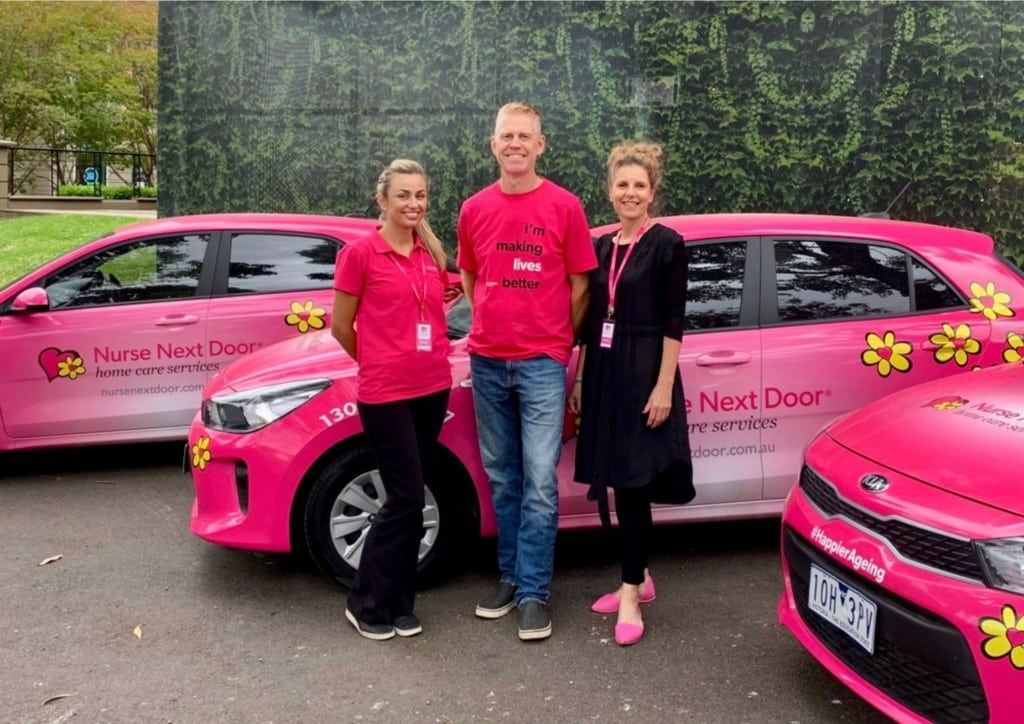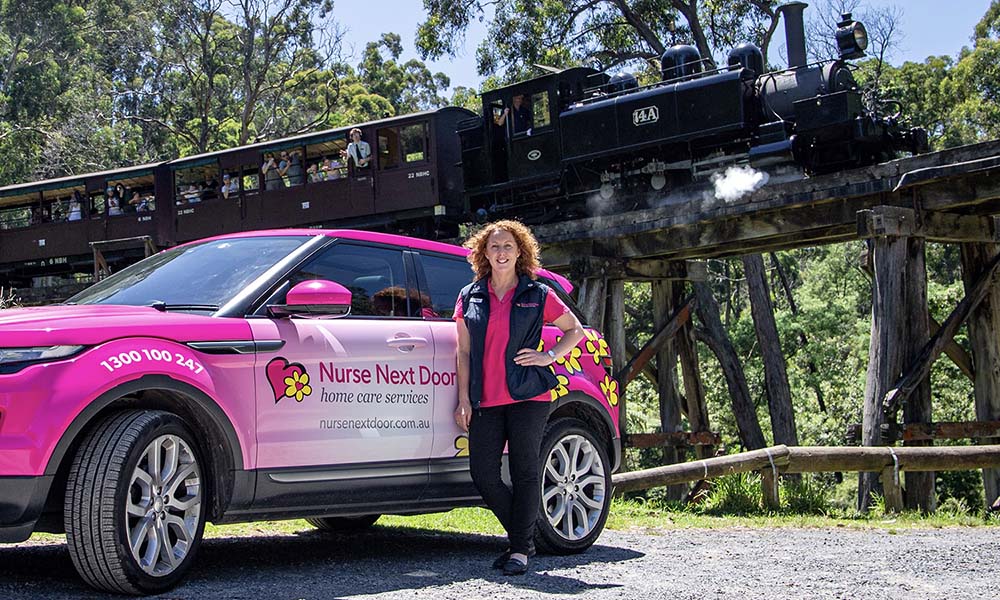You’re probably familiar with the word franchise, and have probably gone to one yourself; McDonald’s, Subway, Jim’s, Just Cuts and even 7-Eleven.
What you need to know is that owning your own franchise can be a profitable business. It is one of the fastest-growing pathways many entrepreneurs are taking for their next business venture. According to IBISWorld, Australia’s franchise industry contributes $172.3bn in to the Australian economy and has seen a steady growth rate of 1.1% in 2022. Further to that, the Franchising Industry is the 8th largest market in Australia.
With steady growth happening in the industry, and low barriers to entry, franchising is becoming a lucrative industry for people who want to grow and expand their business potential.
If you are an already established entrepreneur or someone who wants to put their business skills to good use, gain real financial freedom and have the flexibility you’ve always wanted, then opening a franchise business could be the perfect career transition for you.
If you’re not sure how to start, this ultimate guide will help you learn more about franchises and what practical steps you can take to open your franchise. Learn more about the world of franchising and home health care.
Table of Contents
- What Is a Franchise?
- Main Types of Franchises
- Advantages to Owning a Franchise
- Investment Needed to Start a Franchise
- ROI for Franchise Partners
- 10 Steps to Launching a Franchise
- Learn More About Franchising
What is a Franchise?
A franchise is a business model where a product or service is owned and operated by a franchise partner (more commonly known as a franchisee) who purchases and reproduces an already established business blueprint.
The franchisor provides the franchise partner with the brand name, trademarks, as well as the overall business systems and processes to ensure that the business runs smoothly. The individual franchise partner will then operate the business, at a local level, under the franchisor’s brand and the proven model.
Usually, the franchise partner will pay the franchisor an initial fee as well as licensing costs to set up the business. While the franchise partner is operating and continues to use the franchisor’s brand name and systems, recurring royalties will be paid to the franchisor. In return for these royalties, the franchisor will provide ongoing support to the franchise partner to ensure success.
A franchise can offer individual franchise partners the best of both worlds: being an owner and operator of their own small business while also having the support and brand credibility that only larger brands can offer.
Main Types of Franchises
We are spoilt for choice when it comes to choosing one of the many franchise offerings out there that span across a range of industries, which will suit different investment levels, lifestyle goals and more. Some popular examples include fast food, automotive, cleaning and even home health care services. Franchising is often divided into four broad categories:
Mobile Franchises
Mobile franchises operate remotely with no fixed office address to a franchise partner who doesn’t have to pay rent on a retail space. Mobile Franchises will travel to the consumer directly to provide a single or range of services. Business examples include:
- Jim’s Mowing
- Hire-a-Hubby
- Graffiti Eaters
Service Franchises
Service franchises provide a single or range of services to clients, rather than selling products. Some service franchises can also be listed as mobile while others will have a fixed address or office. Business examples include:
- Mortgage Choice
- Kumon
- Nurse Next Door Home Care Services
Retail (Food and Beverage) Franchises
This retail category exclusively sells food and/or drinks. They are generally located at a fixed location and can provide a range of products. Some Retail (Food and Beverage) franchises have different retail space options for franchise partners, for example, Acai Brothers offer a flagship retail space option, a hole-in-the-wall option, and a mobile food truck option too. Other business examples include:
- McDonald’s
- Dominos
- Subway
Retail (non-food) Franchises
These franchises will also operate from a fixed location but will provide products or services that are beyond just food and beverage. Some of these retail franchises also have a mobile offering and/or also offer services and may crossover into other categories too. Business examples include:
- Just Cuts
- 7 Eleven
- Bridgestone Select
Advantages to Owning a Franchise
The idea of becoming a business owner is an exciting opportunity as it allows greater access to flexibility, and financial freedom giving people better control of their life, career and overall time.
Becoming a business owner and starting from scratch can also come with a lot of challenges which is my many have chosen to go down the path of owning a franchise. Several unique advantages can fast-track your success as a franchise partner.
- An established business model and processes means that half the work is done for you.
- Already market-tested and recognisable products and services will allow you to reach your business goals faster.
- An established and recognised brand name reduces the need for lengthy brand awareness campaigns.
- Established and ongoing support systems with access to business coaches and other franchise partners.
- Lower financial risk as the business model brand, systems and products/services have already been built and tested for years.
Investment Needed to Start a Franchise
The amount of investment needed to buy a franchise will greatly depend on what franchise you are interested in. Usually, investments can range from $10,000 to upwards of $1 million.
When researching your potential franchise choices, you can request not only their franchise fee but also the additional start-up costs.
ROI for Franchise Partners
Every franchise partner will be asking “How much money will I make as a Franchise Partner?” at some point during their research, and unfortunately, the answer is not a straightforward one as it will depend on a range of factors for the sake of this article, we will stick to general factors that most affect franchise sales:
Work Ethic
Having a strong work ethic is another key trait of a successful franchise partner. Although franchise partners have a lot of benefits and support from the franchisor, it still requires hard work to set it up and ensure everything runs smoothly. Just like any business, it still takes some time to establish a franchise in a local market, especially during the start.
Business Knowledge
It’s already been established that the reason a lot of entrepreneurs go down the franchise path is because of the access to the franchisor’s support, resources, and guidance. If, however, you have personal business expertise, experience or knowledge, you will be better equipped to lead your franchise to success. It is one thing to be given resources but another to be able to implement them well.
Location
When researching which type of franchise will yield the best return on investment, location is essential and can either make or break a business. Ensure you look at the demographics, competitors, and overall local business data of your desired location to determine your success as a franchise partner.
Revenue Streams
Diversifying revenue streams in any business is something that is often missed by business owners. Even when looking at the right franchise for you, it is important to consider early on whether the franchise you’re interested in has access to diverse revenue streams.
For example, the home healthcare franchise Nurse Next Door has access to multiple streams of revenue. Franchise Partners can collect payment from not only their private pay clients but also from Home Care Packages and the National Disability Insurance Scheme (NDIS).
10 Steps to Launching a Franchise
1. Decide on a Franchise Type
With so many different types of franchises available, it can feel overwhelming, which is why you must do your research.
Firstly, it’s important to think about your skills, passions, experience, and even personality when deciding on the right franchise business for you, and whether you want to start it on your own, as a partnership, or even as a family.
Once you’ve established whether having a franchise will fit with you, a good place to start seeking franchise opportunities through various franchise directories like Franchise Direct, where you can search for franchise businesses based on your ideal investment amount, locations, and industries.
2. Research Market Conditions
Once you’ve shortlisted your favourite franchise options, the next step is to research the market conditions and determine whether there will be enough customers in your desired location to make your franchise a success. Some questions to consider include:
- The demographics of your target market
- Number of competitors
- Whether the competitors are performing
- Any short-term and long-term industry trends
3. Take part in a Franchise Discovery Process
A great way to discover more about a franchise is to download any additional resources that are available on their website, such as a franchise report, to get a more detailed understanding of the franchise’s company culture, systems, values, and policies.
Further to this, you can also organise an initial call to see what the people at the franchise are like and have them answer any questions that you might have. The importance of a first call is to not only ensure the franchise business model is a good fit for you, but that the franchisor can confirm whether you’ll be a suitable fit for a partnership with them as well.
Franchisors do prefer if you come prepared with questions and information you’d like to know as the information from that call will help you decide if this particular franchise is the right business opportunity for you.
4. Write a Business Plan
As a part of the application process, the franchisor may ask to see a business plan along with any lenders when trying to secure any necessary business loans.
In general, it is important to create a well-thought-out plan and show that you know how to implement the strategy regardless as it will help provide you with a business direction and goals. Some sections to include in your business plan are:
- Your background and qualifications
- Market research
- Product or service research
- How you will manage the business
- Your team’s information
- Marketing plan
- Financial forecasting
5. Source Funding
Your business will require a sufficient amount of starting capital to fund your initial franchising fees and other costs to get started.
Franchisors will want to understand that you know where you will be sourcing those funds from to showcase your due diligence and secure the franchisor’s confidence. It is important to note that start-up fees are different from usual business expenses, such as employee wages, insurance, and taxes. Some financing options include:
- Stocks and bonds
- Loans
- Savings
- Your small businesses or investments
- Franchisor financing options
6. Review the Franchise Agreement
If both you and the franchisor believe this is the right fit and would like to secure the partnership, they will then provide you with a franchise agreement.
This franchise agreement is your legally binding business contract, so you must read it thoroughly and consult a franchise lawyer, if necessary, who has experience in this field. Franchise lawyers will have the knowledge and expertise that can help you better understand the various franchise laws and fees within the agreement.

7. Set up Your Franchise Infrastructure
Once the franchise agreement has been signed, and you have become a franchise partner with your chosen franchise, the fun can begin and you can start setting up your franchise!
From here, the franchisor will provide you with a guide on important setup steps like setting up liability insurance, obtaining licensing and permits, etc. This is where you will also want to refer back to your business plan.
8. Attend Provided Franchise Partner Training
In addition to setting up your business, you will also be required to attend some training to set you up for success from day one. You will learn all the necessary corporate rules, create an upcoming marketing plan, and all other relevant information required to successfully launch as a new franchise partner.
During this time you will also gain access to a rich database of resources to learn, in detail, about the brand, culture, and systems. Many franchisors will then provide ongoing training to keep you up to date and ensure you’re heading down the right path. For example, at Nurse Next Door, you are immersed in a 5-day intensive training program and also provide ongoing coaching and support.
9. Join Community and Networking Events
Attending community and networking events in your local area is a great way to prepare for the launch of your business. By building the connections early on with other franchise partners in a range of industries, you’ll have a support system of peers you can tap into whenever you need.
Similarly, franchisors will connect you with other franchise partners within the franchise through online and in-person events to help you along your franchising journey. This will allow you to get to know your fellow franchise partners and a strong internal support network.
10. Prepare for Launch
The time has come to finally launch your business into your local community so you will want to be well prepared for opening day.
The franchisor will have a general guideline and help prepare your marketing plan to follow but it is essential to add some of your own touches to make the launch of your franchise as special and exciting as possible. This is an excellent opportunity to draw and connect with your target consumers, as well as make a name for yourself.
Learn More About Franchising
There are many different franchise opportunities you can choose from but in the last decade, many believe that the home health care industry is one of the stronger options for accessing financial independence.
With an ageing population and availability of NDIS funding, and the fact that 7 out of 10 Australians prefer to stay at home as they age has meant that franchise partners that provide home health, elderly care and disability support are all seeing a vast increase in their customer base.
In addition to the financial potential of running a business in the home health care sector, many franchise partners with Nurse Next Door have found a real purpose in their life knowing that they can provide services that will help people live their life to the fullest and age happier.
If you want to learn more on how to set yourself up for success while building a business with heart, sign up today to access your 40-page Nurse Next Door Franchise and Industry Report as well as access to a calendar so you can book a 1-on-1 chat with our representatives.













